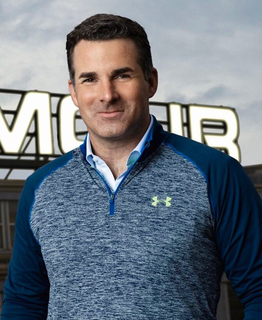A Quote by Sam Altman
You want to think about what is the path for my first 10 or 15 employees going to be as the company grows.
Related Quotes
The company [Microsoft] really has to chart a direction in mobile devices. Because if you're going to be mobile-first, cloud-first you really do need to have a sense of what you're doing in mobile devices. I had put the company on a path. The board as I was leaving took the company on a path by buying Nokia, they kind of went ahead with that after I told them I was going to go. The company, between me and the board, had taken that sort of view. Satya, he's certainly changed that. He needs to have a clear path forward. But I'm sure he'll get there.
The reality is the only place a company's culture is going to start and end is at the beginning of that company. And it always starts with the founders. So if you can't create an environment of founders and founding employees who are going to represent the company you want, then you are never going to get there. You have to look at your own network and find what you are missing. So if you don't have a female or someone who has an international perspective or a person with a bio degree, but those perspectives matter to the firm or product you want to create, then it's never going to work out.
Other countries around the world make employees and retirees first in the priority. For example, in Mexico, the bankruptcy laws say if a company wants to go bankrupt... obligations to employees and retirees will have a first priority. That has an effect on every negotiation that takes place with every company in Mexico.
Something worth doing might take a while, so really flesh out the potential of the business and be honest about whether it's worth doing. If it's not a $100 million company in five years, maybe it'll take 10 or 15 years. If you're doing something that has a universal, timeless need, then you need to think of the company in a timeless way.
When you're in a start-up, the first ten people will determine whether the company succeeds or not. Each is 10 percent of the company. So why wouldn't you take as much time as necessary to find all the A players? If three were not so great, why would you want a company where 30 percent of your people are not so great? A small company depends on great people much more than a big company does.
































